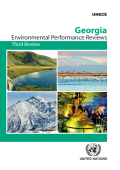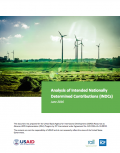

The Coruh/Chorokhi river system is of great economic importance to both Turkey and Georgia because of its largely undeveloped but economically exploitable potential for hydropower. On both sides of the border a large number of hydropower projects are being implemented unilaterally in which private investors play the key role, following liberalisation of the energy sectors in Turkey and Georgia. This has been promoted in both countries, despite the resulting social and environmental costs, particularly in Turkey.
Negative effects – i.e., the changes in sedimentation and the river flow regimes – moving from upstream interventions in Turkey to downstream Georgia – have still not been resolved, and they will put electricity generation in Georgia at risk when the hydroelectricity plants start operating. This article explores regional disputes and the degree of cooperation that exists, and analyses the effect that the efforts of relevant actors to establish regional electricity trading are having on the current problems. The creation of a regional electricity market seems to be opening up a new avenue for cooperation also on water.
Armenia and Georgia are taking the climate change agenda seriously and contributing to efforts for mitigating global climate change through various ways, including preparation of low-carbon development strategies for their future economic growth. The improvement of energy efficiency is one of the key elements of the low-carbon development strategies. This study develops a methodology to estimate a marginal abatement cost curve for energy efficiency measures and applies it to the building sector in both countries. The study finds that among the various energy efficiency measures considered, the replacement of energy inefficient lightbulbs (incandescent lamps) with efficient lightbulbs is the most cost-effective measure in saving energy and reducing greenhouse gas emissions from the building sector. Most energy efficiency improvement options considered in the study would produce net economic benefits even if the value of reduced carbon is not taken into account.

This white paper provides an analysis of the Intended Nationally Determined Contributions (INDCs) for 37 partner countries in the U.S. Government's Enhancing Capacity for Low Emission Development Strategies (EC-LEDS) program and other designated priority countries. The white paper includes an overview of global INDCs, country profiles for countries, regional trends, and sectoral trends. Moreover, each country profile includes information from the INDC on the:
Promoting green growth requires well-designed institutions and environmental policy instruments that are effective in achieving their environmental objectives without imposing excessive burdens on the economy. There is growing recognition in OECD countries that economic instruments such as environmentally related taxes can be effective in stimulating a shift to less-damaging forms of production and consumption while providing producers and consumers with flexibility in making these adjustments. Behavioural changes stimulated by economic instruments may lead to the creation of new jobs and employment opportunities. Investments in new "cleaner" technology can be an important source of employment and business development. Where economic instruments generate revenues, the appropriate deployment of these revenues can also make a significant contribution to enhancing incomes and growth.
